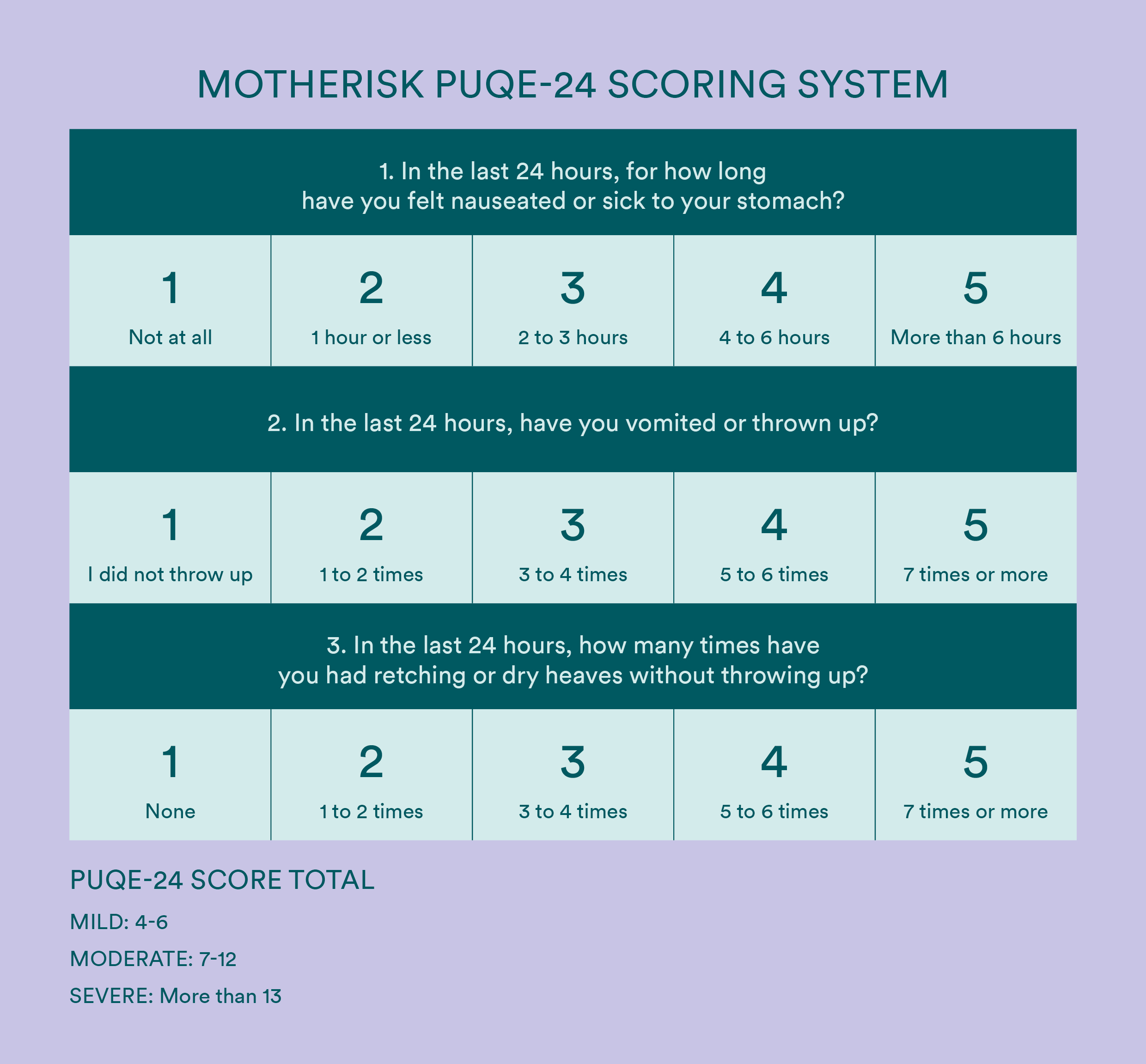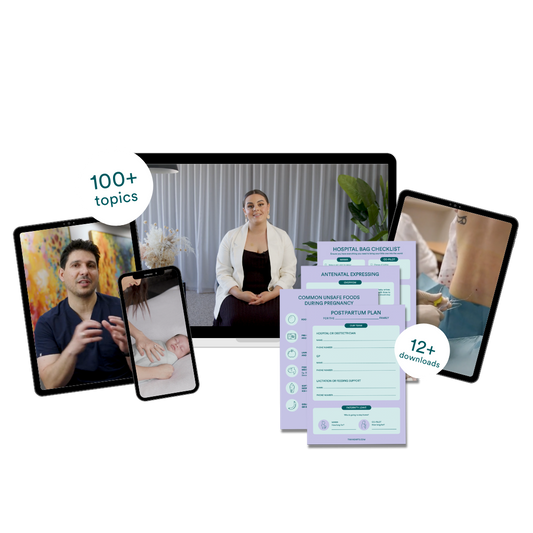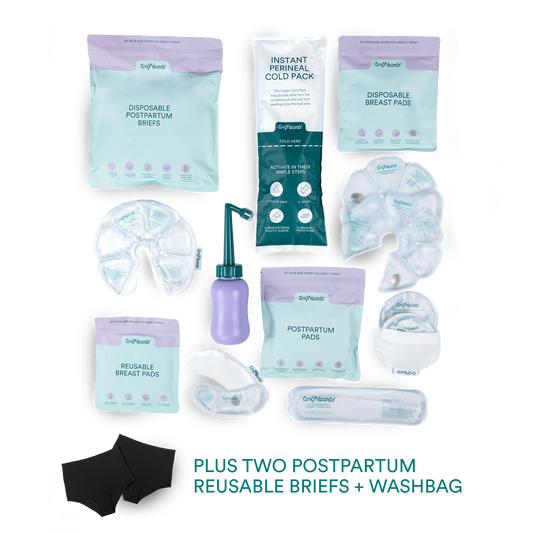My experience so far

As many of you know, I am pregnant with baby number 3. One of the things I have spoken openly about is the challenges I've faced with severe nausea and vomiting. This one surprised me because I didn't experience anything like this with my first 2. Constant nausea left me feeling like a shell of myself. I felt tired and helpless and was constantly on medication to get through each day. Looking back on that time, as I started to see the light at the end of the tunnel, I realised that it was a darker time than I had thought. For me, the sickness started to settle well into the 2nd trimester at around 16 weeks, which I know is luckier than the experience other people have. I was lucky to have such supportive loved ones around me. Another resource that was a life-saver during the pits of the sickness was Hyperemesis Gravidarum Australia. I did lots of research and got myself educated, which made understanding what I was going through a little better.
Here is some information that helped me and hopefully will help another mum going through something similar. Remind yourself that what you are going through IS tough, it is not your fault, you are not alone in this and that it too will pass.
What is nausea and vomiting in pregnancy?
You might have heard of the term "morning sickness" before to describe this condition, but anyone going through it can vouch that it can happen at any point in the 24 hours. It is not confined to just mornings.
More than half of all pregnant women experience nausea and vomiting in their pregnancy to some extent. Most women will experience it in their first trimester and usually settle by 16-20 weeks. Women will also experience nausea and vomiting and varying degrees.
What causes nausea and vomiting in pregnancy?
Unfortunately, no one really knows the exact cause of this pregnancy phenomenon. But there are some theories about why pregnancy causes this in some women. One of these theories is that the normal hormonal changes that happen with pregnancy cause this. Pregnancy can also cause changes in women's blood pressure; another theory is that this could cause nausea and vomiting. But at the moment, the exact physiological cause of nausea and vomiting remains a mystery. One reminder that I know I needed to hear, and maybe another mama out there does too, is that you did not cause this. It does not mean that there is anything wrong with your pregnancy or your baby. It is not your fault.
Does nausea and vomiting affect my baby?
Women can be concerned about the physical action of vomiting and if it affects their baby. Although vomiting and retching could cause strain in your abdominal muscles and soreness in that area, it won't harm your baby. Bub is protected by the amniotic fluid and sac that surrounds it inside. Another concern women have is the lack of fluids and food they take while experiencing nausea and vomiting in their pregnancy and if this will affect their baby. Both you and your baby need a range of nutrients and fluids. If your vomiting is excessive and you cannot take in and keep down adequate fluid and nutrients, you could be at risk of dehydration and weight loss. If your symptoms are causing these concerns, contact your GP, obstetrician or midwife.
Treatments: What can I do to help my nausea and vomiting during pregnancy?
What to eat?
- Rather than trying to eat large meals, eat smaller amounts more often
- Eat a plain/dry cracker when you first wake up
- Avoid eating fatty foods Eat protein-rich foods
- Cold foods might be better tolerated than hot foods.
What to drink?
Try and keep up your fluids as much as possible.
Try fluids like soda water, ginger/peppermint tea, and sucking on ice cubes.
Some things to try/tips:
Deep breaths and relaxation techniques
Acupuncture wristbands
Allow yourself more rest
Wear loose clothing
Avoid cooking and preparing foods
What medications are safe to use in pregnancy?
The TGA (Therapeutic Goods Administration) has classified medications based on evidence about their risk associated with taking the medication while pregnant in the prescribing medicines in the pregnancy database. It is important to chat with your doctor or midwife before taking any form of medication while pregnant. If the medication is classed in category A, it means the medication has been taken by a large number of pregnant women and women of childbearing age without any proven increase to harmful effects on the baby.
What medications can I take for nausea and vomiting in pregnancy?
Always check with your doctor or midwife before taking any supplements or medications. And remember, the choice of medication you go with may not work for someone else. The medication that works best for you will be based on your symptoms and how your body responds to the medications.
Ginger
Improves gastrointestinal motility
Can improve nausea but not vomiting
Recommended to use standardised products rather than food
Dose: Take up to 1200mg a day in split doses
Can cause heartburn
Vitamin B6
Decreases the stimulation of the vomiting centre
Can improve nausea but not vomiting
Dose: take 10-25mg 3-4 times a day
Doxylamine
Decreases the stimulation of the vomiting centre
Decreases nausea
Category A
Metoclopramide
Stimulates gastrointestinal motility and acts on the vomiting centre
Decreases nausea and vomiting
Side effects: restlessness, depression
Category A
Ondansetron
Acts on the vagus nerve. Blocks serotonin which is the natural substance that causes nausea and vomiting
Combats nausea and vomiting
Can cause constipation, headaches and dizziness
Conflicting data on its risk of teratogenesis but does not appear to increase the overall risk of congenital disabilities.
Category B1: Medication has been taken by a limited number of pregnant women and women of childbearing age without an increase in the frequency of malformation or harmful effects on the baby being observed.
Corticosteroids
Acts on the chemoreceptor trigger in the brainstem
Improved sense of well-being and appetite in HG
Side effects: potential Cushing's syndrome, mood disturbances, hypertension, hyperglycaemia
Weak data suggest a possible increased risk of oral clefts when used before the ten-week gestation
Medications for constipation
I can vouch for this being an unfortunate side effect of nausea and vomiting in pregnancy. The combination of fewer fluids, changes to your gastrointestinal systems, and the drugs used to treat nausea and vomiting make constipation common in women with NVP and HG. Chat with your doctor or midwife about what options would be suitable for you.
Getting Support
Research has found that having severe morning sickness increases the risk of depression. Having the right support and resources in place will help minimise this risk. Remember, you are not alone in this. Reach out and get the help and support that you need. Raising a kid takes a village, but so does growing one.
Find a doctor who will listen to you and discuss treatment options
Read up on the resources and join a support group - I highly recommend Hyperemesis Australia
Be kind to yourself.
When to see a doctor about your nausea and vomiting in pregnancy
Your symptoms are impacting your ability to live your life as normal
Significant discomfort
Signs of dehydration
Dark urine
Blood the vomit
Extreme fatigue
Dramatic weight loss
How severe is my nausea and vomiting in pregnancy?

A helpful resource for me was the Motherisk Pregnancy-Unique Quantification of Emesis and Nausea (PUQE) scoring index. The PUQE-24 score helps to measure a woman's severity of her nausea and vomiting over 24 hours. This can help track how your symptoms are progressing and if there are any changes.
Hyperemesis Gravidarum
HG is a real and debilitating medical condition, and it is important that you are listened to and get the treatment you need. Hyperemesis Gravidarum is a severe form of pregnancy sickness. It can put the mother at risk of dehydration and malnutrition because of the amount of fluid going out and lack of fluid and nutrients going in. Read our blog post from the founder of Hyperemesis Australia for more information.
online baby & child first aid
$145
Learn baby & child first aid from your device at home! Purchase now and learn right away.
Our instant access course includes over 38 videos and 15 bonus downloads including content on whooping cough, croup and more!









